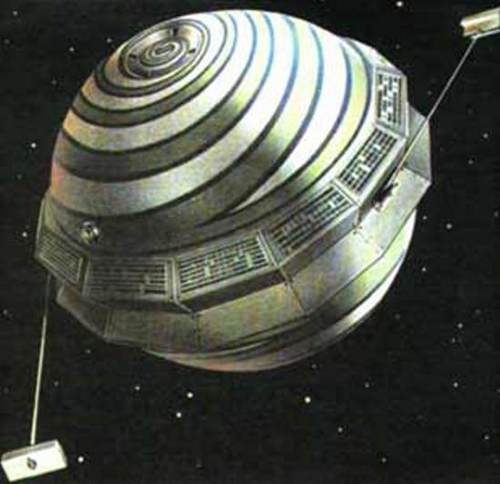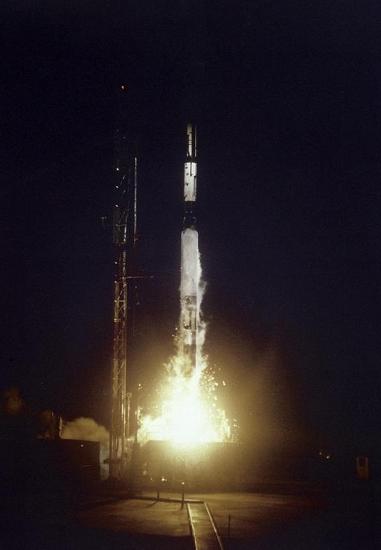A bit of a stop press on the Space Race as I wade through this months Astounding, which I unwisely saved for last. You should never eat dessert first…
Have you ever noticed how a train’s whistle seems to rise in pitch as the locomotive approaches and then the pitch lowers as the train departs? This is caused by the compression of sound waves as they whistle heads toward your ears followed by a decompression as it heads away. It’s called the Doppler Effect (after the 19th century Austrian scientist, Christian Doppler).
This concept will be used by satellites to provide accurate navigation aids for American military craft and, someday, civilians as well. The idea is that the satellites, called Transit, will broadcast at a fixed frequency. A receiver on the ground can tell from the quality of the Doppler frequency shifts, knowing the satellite’s orbit, where it is to within a small degree of error. Very simple in concept.

Sadly, Transit 1 failed to orbit the day-before-yesterday when its Thor Able booster malfunctioned after liftoff. On the other hand, the Navy (the service that developed the satellite) did get some useful data from the sub-orbital flight, I’m told.
Speaking of the Navy, the final flight of the Navy/civilian Vanguard program ended in success yesterday with the orbiting of Vanguard 3. It is another x-ray, magnetosphere, and micrometeoroid detecting probe along the lines of the Explorers. Its long-lasting orbit and conical shape will also allow the satellite to be used to determine the density of the upper atmosphere for decades to come.
I’ll publish more on the scientific findings of this probe as I hear them. We are beyond the days where just getting the things up is the whole story.
And with that, the Vanguard program comes to an end with three successful flights out of 11. This may sound like a poor record, particularly given the rather vicious coverage given the program by both domestic and foreign media (remember “Flopnik”?)

But Vanguard has enabled the reaping of a tremendous harvest. As a booster, it was remarkably efficient and cheap. The reliable second and third stages have been adopted as supplemental stages on other rockets, and it looks like the first stage will be turned into NASA’s new Vega second-stage system. Thanks to Vanguard, there will be American property in space for the next several hundred years.
Most importantly, Vanguard paved the way for a truly civilian space program. Though it was derived from a Navy proposal, and spin-off technology from the program is being used by the military, the idea of a purely scientific and non-military space endeavor is a powerful and important one. Our new space agency, NASA, owes much to it.
—
P.S. Galactic Journey is now a proud member of a constellation of interesting columns. While you're waiting for me to publish my next article, why not give one of them a read!
(Confused? Click here for an explanation as to what's really going on)
This entry was originally posted at Dreamwidth, where it has comments. Please comment here or there.

